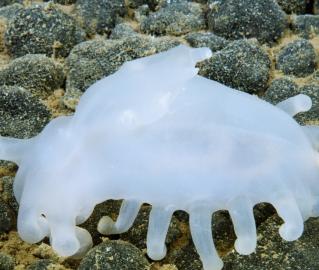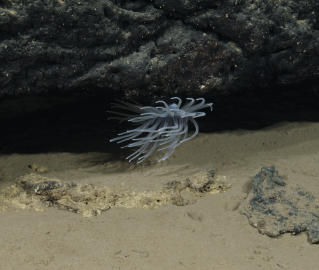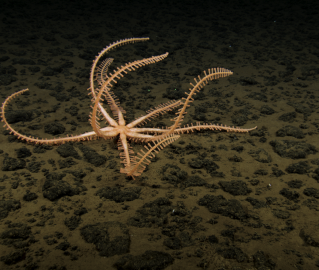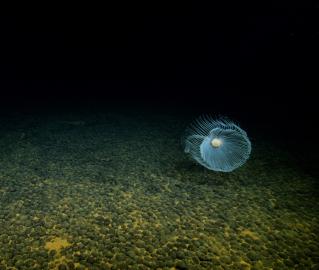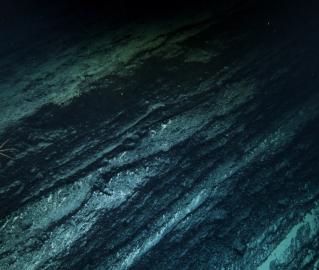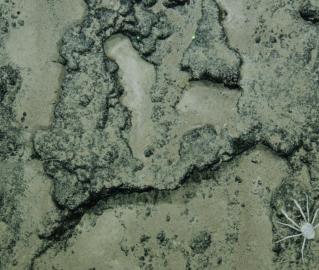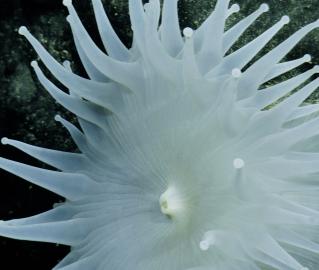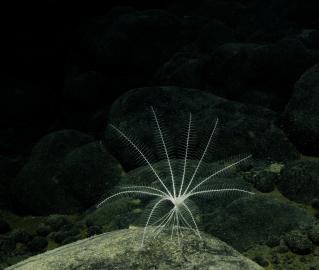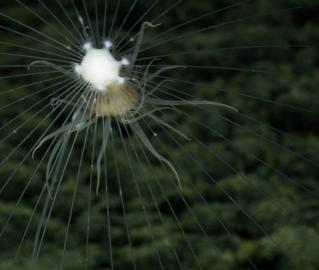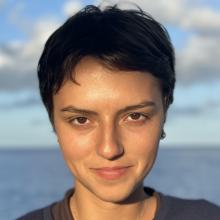
Kahena Wilhite
Tell us about your work/research. What kinds of things do you do?
I’m an environmental anthropologist who studies how communities, ecosystems, and land management meet, with a rising interested in marine resource management. A lot of my research has lived both in the field and behind a screen. I learned how to map and monitor landscapes in my undergraduate degree using geospatial technologies and ArcGIS. I have also hosted community members and elementary schoolers in "nature walks" to introduce elementary schoolers to ecological sciences. I have made short films about mass incarceration, conducted interviews about food insecurity, and written research papers that center on everyday voices while situating them in political and ecological contexts.
What sparked your initial interest in your career?
I fell for this work the hard way, through smoke and dust. As a teen crew leader and later a trail worker in Yosemite with the Park Service, I watched places I’d cared for burn in forest fires. Learning that poor land management practices since colonization, and suppressed indigenous knowledge, have led to the current state of our forests, helped me understand that I wanted a career that integrates knowledge from real people, learned throughout history, and uses scientific research as a basis for understanding in order to make better decisions.
In my studies, I focused on indigenous communities, having hosted indigenous art exhibitions at the nature reserve in Monterey, and visiting indigenous reservations throughout Northern and Southern California during my photography field quarter. I then undertook a research project doing dendrochronology work—boring tree cores, counting the age of trees, and reading fire intervals—which made those history lessons of how the land came to be the way it is today, more tangible. I since began taking coursework within ecology, seeking ecology and evolutionary biology field classes, and my focus within anthropology became environmental.
Who influenced you or encouraged you the most?
My dad, who dedicated his career to researching consumption patterns within the energy sector, and after he passed away, I felt a responsibility to carry that work forward. He began by studying mathematics and engineering, and later became an archeologist and anthropologist. His ability to be multidisciplinary within his work was my greatest inspiration. My professors, mentors, and bosses have continuously encouraged me and taken the time to guide me throughout my adult life.
What element of your work/study do you think is the most fascinating?
The natural world and its ability to calm me down with its beauty and wonders. Meeting people from all over the world, of all ages, with all sorts of expertise and life experiences. People's kindness, passion, and generosity.
How did you get involved with the Ocean Exploration Trust?
My current master’s program through the University of Oslo has pushed me to write a research paper on deep-sea mining within the context of the South Pacific Ocean, while simultaneously looking at Norway, the United States, Japan, and the Cook Islands. Through my current internship with the Cook Islands Seabed Minerals Authority, I am learning more about their ongoing efforts to gain more information about the seafloor during the exploratory phase. I happened to be in the right place at the right time, and NOA then invited me to join the Nautilus Expedition within the Communications team, a dream job in my eyes.
What other jobs led to your current career?
I spent a summer working for the Sierra Institute for Community and Environment as a teen, doing trail work, and eventually worked for the Yosemite Park Service building a bridge and doing trail maintenance. At a young age, I learned that I enjoy working outdoors, but I have also always had an artistic eye. Although my degree was in Anthropology, it might as well have been a mixture of Anthropology, Video Production and Photography, and Ecology. I began doing freelance photography, and was a family and maternity photographer alongside my studies. In a two-quarter-long course, I made an 8-minute documentary short film, and then began filming all of my interviews and field experiences to be turned into documentaries rather than just research papers.
At Fort Ord Nature Reserve in Monterey, I was a land steward, did endangered species monitoring, and worked in a greenhouse for my senior year of college. I was also a writing tutor at my university, which I am beginning to think is an interesting mix of interests for pursuing science communications. Finally, earlier this year, I did an internship with UC Davis Energy and Efficiency Institute, and my interests led me to learn out about the potential for seabed mining within the energy transition!
What are your degrees and certifications?
Bachelor of Arts in Anthropology -- University of California, Santa Cruz
Master of Philosophy in Development, Environment, and Cultural Change -- University of Oslo 2026
What are your hobbies?
Surfing, running, yoga, music, and swimming in rivers and oceans. As a polyglot, I also like learning new languages.
What advice would you give someone who wants to have a career like yours?
Preparation meets opportunity. No effort is wasted, so do what you love because your skills may someday come in handy. Always be 100% in everything you do. It is so easy to get distracted, live a life full of multitasking, and never truly gain what you might have from the opportunities that are right in front of you.
Expeditions
Kahena participated in the following Ocean Exploration Trust expeditions:
